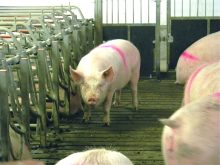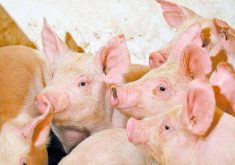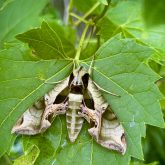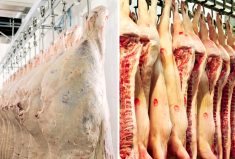Inspired by the success of a Belgian research team seeking a novel “immune therapy” approach to post-weaning diarrhea in pigs, a Canadian team is working to develop an antibody to prevent E. coli 0157:H7 that can be delivered to pigs through their feed.
The work began more than five years ago after Agriculture and Agri-Food Canada (AAFC) research scientist Dr. Rima Menassa learned about E. coli contamination in an Alberta meat processing plant. She knew of the Belgian team’s efforts to bio-engineer an antibody that will grow within the cell structure of a plant, and secured three years of AAFC funding to explore the possibility of using the same technology to bio-engineer E. coli 0157:H7, a bacterial pathogen of significant concern in the pork sector.
Why it matters: Preventing E. coli in hog barns has direct economic benefits to the farmers by promoting healthy pigs, but the pathogen can also be transmitted through manure and present both human health and food safety risks.
Read Also
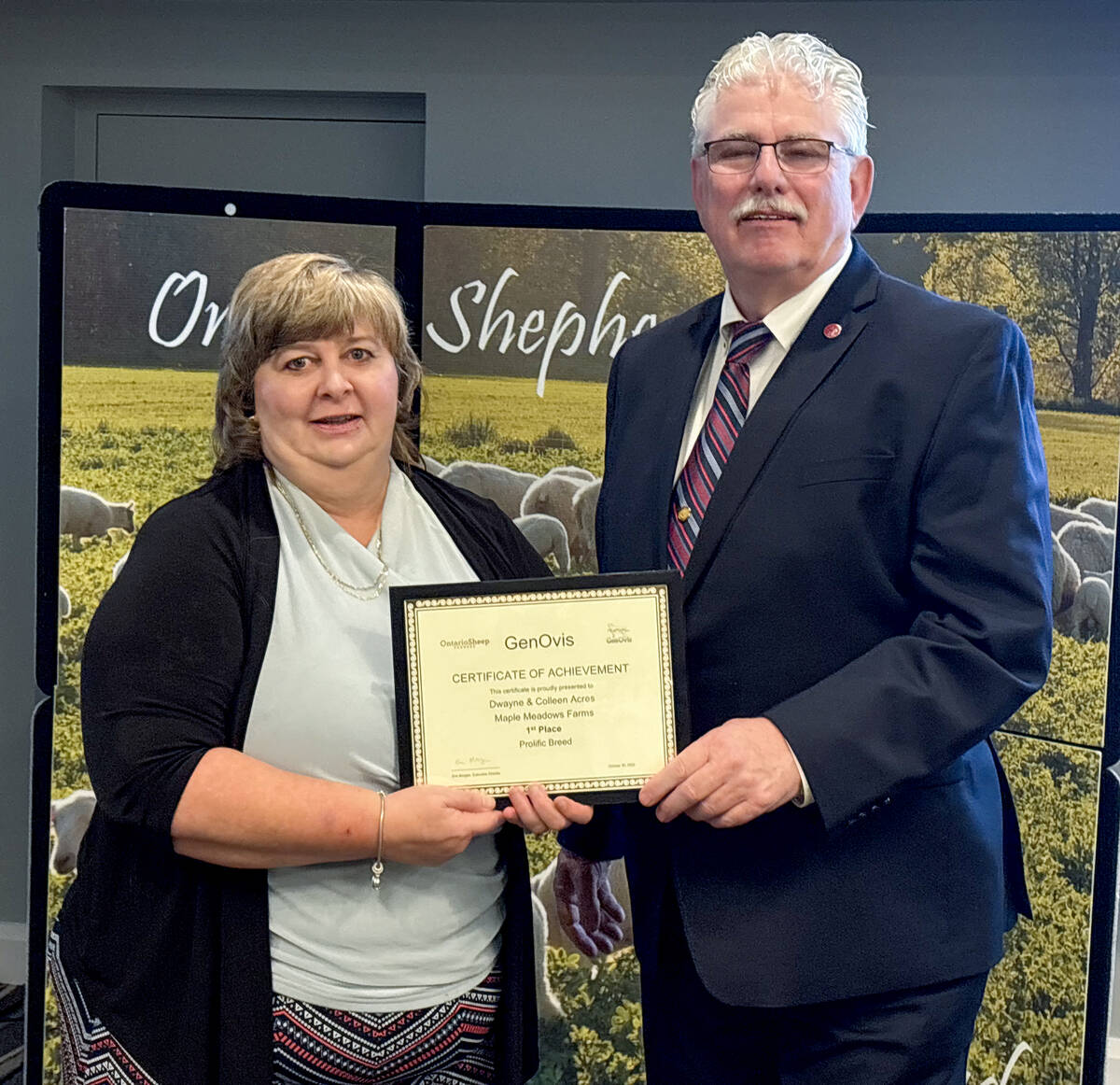
GenOvis awards presented at Ontario Sheep Farmers’ annual meeting
Producers and youth were recognized for their contributions during the Ontario Sheep Farmers’ annual GenOvis and leadership awards.
“I was very impressed by the work (the Belgian team) did and we took a very similar approach,” Menassa told Farmtario.
During the first three years of the study Menassa, based at AAFC’s London Research and Development Centre, worked with a form of antibody with a single-chain DNA that’s unique to llamas and camels. The single-chain proteins, called “nanobodies,” are characterized by very strong binding to the target cell.
Llama-derived nanobodies are well-known for their potential in medical research, including much ongoing work targeting COVID-19.

Through bio-engineering, she fused nanobodies that had been exposed to E. coli with antibodies typically found in pigs. Further engineering created antibodies that will grow within the cell structure of plants.
The purpose, according to an AAFC release, is to create a plant-based feed additive with the plants growing the antibody. “Cell walls of plant matter can protect the antibody during digestion,” it said. “This helps the antibodies reach the gut, where they bind to E. coli bacteria and can prevent further colonization of the pathogen in the digestive tract.”
“This is a novel approach,” Menassa said of the plant-grown antibody. “This is not something that occurs in nature.” In the first three years of the study, she published three scientific papers explaining her work.
A plant biologist without experience with livestock, Menassa knew after this preliminary work that she would need to bring in animal expertise. She was able to attract the interest of the biotech start-up PlantForm, which then applied for follow-up funding through OMAFRA. That’s what’s paying for the upcoming trials in mice, and Menassa is confident additional funding will be secured to continue with trials in pigs.
PlantForm, she explained, has been exploring similar therapeutics for use in humans. But getting approval for trials in humans can be more difficult than getting approvals for use in animals. And conducting those trials can be significantly more expensive in humans than in animals.
The start-up saw the opportunity to join forces with Menassa and begin its explorations through the pork antibody. Menassa and PlantForm then developed a partnership with Dr. Patti Kiser, a veterinary pathologist at Western University, to begin looking at testing this antibody specifically for E. coli in pigs.
The trials, she says, should be straightforward.
“You feed the animal the antibodies and then you challenge the animal with the pathogen. Then you collect the excrement and see if E. coli continues to be present.”
After the end of the experiment, Kiser will examine the mouse intestines for signs of colonization by E. coli bacteria.
“It shouldn’t take too long. It just depends on how many results we need to acquire to make sure they’re accurate.”
Kiser will lead the trials. The aim, said Menassa, “is to determine if the antibody can prevent E. coli colonization in mice and/or prevent E. coli shedding from colonized mice.”
The team hopes to “establish a baseline for the minimum dosage requirement for efficacy. The more antibodies that survive the digestive tract in the animal, the smaller the dosage required to achieve the desired outcomes of preventing colonization and shedding,” she said.
Menassa hasn’t spoken directly with any representatives of Canada’s pork sector about the team’s work but she expects interest will grow as they move towards trials in pigs. And if those go well, there will be enthusiasm to see a feed additive commercialized.
“Feeding the antibody directly to livestock using a plant-based feed additive, rather than through a purified, injected formula, will have cost-related benefits for the industry,” she said, adding that purifying and formulating a treatment of this kind in an injectable form could make up to 80 to 90 per cent of the total cost of the drug.






